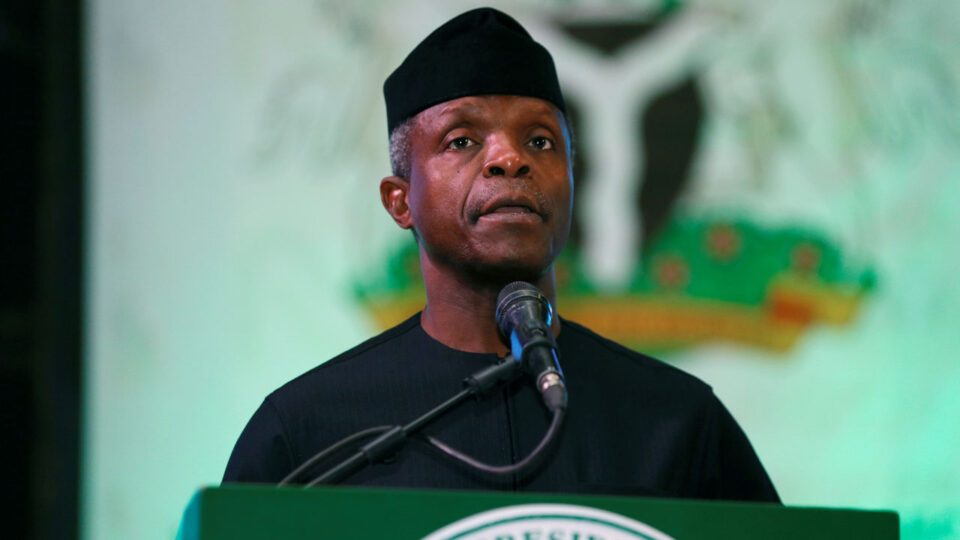By Chesa Chesa
Vice-President Yemi Osinbajo has restated the need to designate gas as a transition fuel in the global net-zero emissions target by 2060 even as he observed that Africa is now winning that argument.
Osinbajo spoke while receiving a delegation of Executive Directors of the African Development Bank, AfDB, led by the Dean of the Board, Mrs Mmakgoshi Lekhethe, earlier today at the Presidential Villa.
“We know what the issues are, we know there is no way we are going to do away with gas. The European Union, fortunately, agrees that gas should be regarded as a transition fuel as well as nuclear power.
“I think that we are winning the argument in some ways in that respect, and it might also be the time to focus on what to do in terms of finance,” according to the Vice-President.
While delving into the issue of climate finance, Prof Osinbajo informed the delegation of Nigeria’s Energy Transition Plan and the cost implications, disclosing that transitioning to net-zero would be in the order of “$400billion leading up to 2060.”
He went on further to say that “we simply have to think more seriously about innovation in climate finance and look at the various options.”
He said AfDB has some very interesting options, and the African Finance Corporation, AFC, is also looking at what their options can be.
Aside from the need to continue to invest in gas as a transition fuel, the VP also pointed out the usefulness of the rainforest as a means of reducing carbon dioxide, noting that our rainforest is able to absorb significant tonnes of carbon dioxide annually.
“If we preserve these rainforests, it means that we will prevent deforestation by those using the wood as firewood for cooking and for heating. It would also mean that we prevent (state) governments from using the land and giving it out for agriculture or industrialization. “If we finance gas and use it for cooking which is a replacement for firewood, we must continue to find gas investments so that this continues to work.”
The Vice-President then explained to the AfDB officials what Nigeria has done in terms of renewable energy with the #SolarPowerNaija programme, a component of the Economic Sustainability Plan.
“We initiated the #SolarPowerNaija programme which is to install solar home systems as well as mini-grids in 5million homes with an impact on 25million people.”
He conveyed the challenges of funding the programme and stated that “what we have tried to do is look for ways to de-risk funding to the private sector because there are so many private sector companies interested.”
“We think that there’s great opportunity there and we have found that where we have introduced solar in commercial spaces such as open markets, the traders are ready to pay, even well in excess of what they pay for power that is coming off the grid, as long as it is constant. Even in villages, people are prepared to pay.”
In her own remarks, the Dean of the Board, Mrs Lekhethe, representing South Africa and other countries, said the visit to Nigeria was mainly to “listen and learn and use the opportunity to visit some of the bank’s projects which included a solar energy site being created at Wuse Market in Abuja.”
She further stated that the board had a meeting with Governor Babagana Zulum of Borno State and other development partners; visited Lagos and had an engagement with the private sector.
Mrs Lekhethe noted that an important key takeaway from their visit is that in spite of challenges exacerbated by COVID-19, Nigeria has pockets of success and they were pleased to see these successes
Present at the meeting includes Dr. Lamin Barrow, Director-General, Nigeria Country Office; other Executive Directors such as Dr Oyetunde Oyebode, (Nigeria), David Stevenson (Canada), Ahmed Zayed (Egypt); Paal Bjornestad (Norway); Cornelius Dekop (Botswana); Niels Breyer (Germany) Amos Cheptoo (Kenya); Takaaki Nomoto (Japan) and other top officials of the bank.



